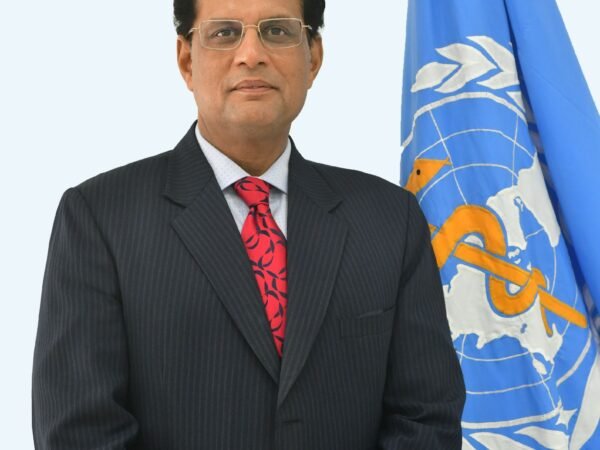Dili, December 13, 2024 (Média Democracia) – Universal Health Care is largely considered an impossible ambition in a resource-constrained country. A privilege reserved for the world’s wealthiest economies. But young people like the Timorese are rewriting the narrative with incredibly difficult, incremental steps.
World Health Organization (WHO) representative Arvind Mathur said that most in Timor-Leste embraced the theme of Universal Health Coverage Day in the Government’s health this year.
“Timor-Leste’s constitutional guarantee through article 57 on free health care at health care facilities places Timor-Leste among a group of countries that have made comprehensive efforts to eliminate financial barriers to health care. In doing so, Timor-Leste has squandered a health that is a small thing in Southeast Asia,” said WHO representative Arvind Mathur.
He continued, although there are still many things that need to be improved in terms of quality and scope of work, the government’s commitment to protecting its citizens from the burden of heavy health costs is very clear. This means that cheap health is not enough, because public health services must also be affordable and of high quality.
“Therefore, in 2024 as a year that should be noted as a new chapter for this country, based on the efforts that have been made previously, with an additional fund of 6 million USD has increased the health allocation by a total of 67.6 million USD to 73 million USD for 2025, with crucial funding being for essential medicines and medical devices.” He said.
He added that this allocation is a declaration to make primary health care more sustainable by relying on domestic resources that automatically guarantee long-term resilience in the health sector. This year’s progress can be seen from efforts to prevent, detect, treat, eradicate diseases, and strengthen the health system.
“A historic step in prevention was the rollout of the HPV vaccine for girls which achieved almost 100% coverage within weeks of its launch. This initiative laid the foundation for a future with very low rates of cervical cancer for those who have been exposed or are suspected of being exposed. With three functioning colposcopy centers now offering advanced diagnostic tools for HPV detection, this is a real need for urgent intervention.” He added.
He informed that this year’s ambitious Primary Health Care package began after two years of clear preparation and training. As part of the project, “Say no to 5S”, Timor-Leste teachers and health workers launched health checks for thousands of students.
“The screening includes a comprehensive assessment of growth, vision, hearing, skin and oral health. This initiative demonstrates the government’s commitment to detecting diseases early and putting vulnerable populations, especially children, on their health agenda. The plan is to expand screening to primary schools that already exist across the country early next year,” he said.
He stressed that the lymphatic filariasis desease as a threat to public health is a great achievement that is increasingly proud for Timor-Leste this year, a parasitic disease caused by mosquitoes that can have a bad impact and damage the human body. This success places Timor-Leste with five countries in the Southeast Asia Region according to WHO to achieve success.
“Universal Health Care is still an impossible dream to achieve without an adequate health system and physical infrastructure. Therefore, the Ministry of Health is trying to revitalize community health volunteers so that they can mobilize the strength of regional soldiers to execute Universal Health Care in its proper form.” He added.
He added that efforts to strengthen capacity have also spread to advanced infrastructure development with the third level. The launch of Timor-Leste’s first PSA oxygen plant at HNGV is a significant achievement with two additional plants in Baucau and Manatuto. This country has paved the way to build a dependency network for local production of this vital medical resource.
“Despite these achievements, it is important to recognise that the journey towards Universal Health Care in Timor-Leste has only just begun. To truly achieve Universal Health Care, the government must continue to focus on investing in health – particularly primary health care, addressing systematic inequalities and strengthening the social and economic structures that shape health outcomes.” He said.
Further explained that in order for health to be recognized as a universal right and not as trash that is only intended for a few people, today should be a day where we do something that will ensure no shortage of health for everyone, in every place.
Reported by : Nelfiano
Picture by : Media Officer of WHO

